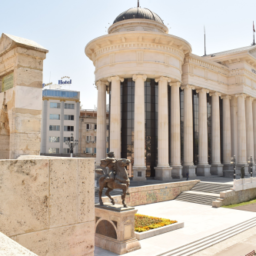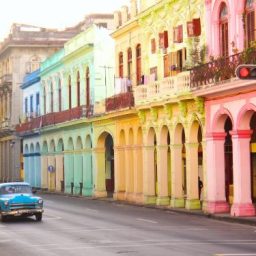

The biggest and most populous country in South America, Brazil, is full of contrasts. Its breathtaking nature, diverse culture, and interesting monuments make it a perfect destination for adventurous travellers. They easily forget about the fact that it is considered one of the most dangerous places in the world (source: Wisevoter).
Brazilian diversity does not end with beautiful scenery and exotic fauna and flora. The demographic structure of the country is composed of various groups: white European descendants, pardo (mixed-race), black people, Asian, and native Indians. There are more than 200 languages in Brazil. Most of them are on the brink of extinction.
A few words about Brazil
Brazil occupies almost the entire eastern part of South America. It borders most of the countries in the continent: Argentina, Bolivia, Guyana, French Guyana, Colombia, Peru, Surinam, Uruguay, and Venezuela. The country lies on the Atlantic Coast. Its beaches attract tourists from all over the world. Experienced travellers also choose the wild places – Amazon Basin or Iguazu Falls.
Most of the country lies in the tropical climate zone. Its diverse scenery is composed of the largest rainforest in the world, savannas, and mountains. Both the Equator and the Tropic of Capricorn cross Brazilian territory.
Capital of Brazil – Brasília
The capital of Brazil, Brasília, is an artificially created city, built in 1956. The idea behind its creation was moving the most important institution to a more central location and distributing equally the population of the country. The last idea was not successful, and the biggest agglomerations have not changed. São Paulo and Rio de Janeiro have held the position of the most populous cities.
Brazilian economy
According to The 2020 World Factbook, Brazil is among the 10 largest world economies. The most prominent sectors are agriculture, mining, and services. The country is a growing market, open for foreign investment. In our team, we have got people who are Brazilian Portuguese natives. They will help you with entering the Brazilian market or securing a new job abroad. If you need a Portuguese translation for you or your company, contact us.
Official language of Brazil
Portuguese is the only official language of Brazil. Almost all residents of the country use it in their everyday communication. The country’s population is more than 200 million people – 20 times more than Portugal, the homeland of the Portuguese language.
Brazilian Portuguese and European Portuguese
Brazilian dialect and the much more widespread standard language version differ slightly. Although European and American Portuguese speakers understand each other, it is fairly easy to guess their origin.
What Portuguese is spoken in Brazil?
You will easily recognize which Portuguese you hear, after listening to a short conversation. The standard version sounds Slavic to many English speakers because of the abundance of hushing, close-vowel and nasal sounds. Meanwhile, Americans’ speech is melodic. They pronounce words clearly, which is a huge help for beginner learners of Portuguese.
Is it still difficult for you to spot a Brazilian? Observe how he interacts with you. Watch out for você, a popular expression often used in Brazil for addressing everybody: a total stranger or the closest friend. European Portuguese prefers to use tu in informal conversation and reserves você as a courtesy expression.
The next big difference is related to the pronouns. The Portuguese word teu is substituted by seu in Brazilian. If you hear este, esta or isto in Europe, you can be sure that the conversation is about something close to you. In America, people will indicate an object using esse aqui, essa aqui or isso aqui.
Vocabulary
Brazilian Portuguese users love to borrow English vocabulary. If a European Portuguese speaker does not know foreign languages, the words time (team), trem (train), celular (cellphone) or esporte (sport) will be unrecognizable to him.
Below you will find a short list of the most significant differences between Portuguese vocabulary. On the left, you can see the Brazilian dialect; on the right – the standard version.
- Castanho – Marrom (brown)
- Gelado – Sorvete (icecream)
- Frigorífico – Geladeira (fridge)
- Autocarro – Ônibus (bus)
- Comboio – Trem (train)
- Casa de banho – Banheiro (bathroom)
- Sumo – Suco (juice)
Attempts to standardize Portuguese orthography
In 1990, a document the Acordo Ortográfico de 1990, unifying the orthography of Portuguese, was published. Some of Europe’s more conservative writers refuse to conform to the adopted rules until now.
The most significant change introduced was the removal of silent sounds from the spelling of the standard variety (mainly “p” and “c”). In the late 20th century, words such as óptimo (great) and acção (action) were replaced by ótimo and ação.



German in Brazil
Somewhat surprising is the fact that Brazil’s second most popular language is… German. This phenomenon is due to historical reasons. In the final phase of World War II, in the 1940s, many Germans decided to escape the falling empire. A lot of them chose Latin America as their destination. Today, their descendants make up as much as 1.9% of the country’s population (per Optilingua Europe).
In cities with a large German minority, there are schools where German is the main language of instruction. Some towns, such as Pomerode and Blumenau, look as if they have been teleported from Bavaria.
Minority languages
In many regions of Brazil, there are other minority languages present:
- Italian – e.g. in the municipality of Rio Grande do Sul or Santa Catarina,
- Polish – in 4 municipalities in Rio Grande do Sul and Paraná
- Ukrainian – in 2 municipalities in the state of Paraná.
Brazil is also home to the largest community of Japanese speakers living abroad.
Native languages in Brazil
Not all of Brazil’s (more than) 200 native languages are used often. They are usually spoken by small communities of up to thousands of members. By the end of the 19th century, Nheengatu was the most widespread tongue in most regions of the country.
Most of the indigenous languages of Brazil belong to two large language groups: Macro-Jê and Tupi. The languages with the most significant number of users are: Tikuna, Guaraní, Kaiowá and Kaingang. Many native Indians speak more than one local language and, if necessary, they use Portuguese, the common language of the country.
Nheengatu
Nheengatu was once popular among the people of the Americas. Nowadays, it has lost much of its influence. This language of the Tupi-Guaraní family is currently spoken by only 8,000 people in Brazil, Colombia, and Venezuela. UNESCO marked him as a seriously endangered language, as the parents no longer teach children to speak Nheengatu (source: Gdańsk Film Centre).
Brazilian Portuguese – basic phrases
In Brazil, you may have trouble getting around with English. The data collected by the British Council indicates that only 5% of the country’s population declares knowledge of this language. To be on the safe side, learn the basic phrases before going on holiday to Rio.
Our Portuguese course will prepare you for having a basic conversation in no time. In a month, you will learn the most important phrases; in a year, you will feel confident speaking. Before you start, check out common expressions:
- Oi/ Olá – Hi
- Bom dia – Good morning
- Boa tarde – Good afternoon
- Boa noite – Good evening
- Até mais/Até em breve – See you later
- Tudo bem? – How are you?
- Prazer em te conhecer/Prazer – Nice to meet you
- Qual é seu nome? – What is your name?
- Meu nome é… – My name is…
- De onde você é? – Where are you from?
- Sou de… – I am from…
- Com licença – Excuse-me
- Me desculpe – Sorry
- Onde eu encontro…? – Where can I find…?
- Eu não entendo. – I do not understand.
- Estou aprendendo português. – I am learning Portuguese.
- Pode repetir por favor? – Can you repeat that?]
- Pode falar mais devagar por favor? – Can you speak slower?
How to learn Brazilian Portuguese?
If you are certain that you want to master Brazilian Portuguese, opt for dedicated learning materials from the beginning. It will be much easier for you to start working with the American accent, words, and grammar structures than getting used to it later. Subscribe to our individual Portuguese course, equip yourself with a good textbook, write down interesting YouTube channels run by local vloggers, and watch… telenovelas! Thanks to that, you will quickly learn to speak like a native carioca.















